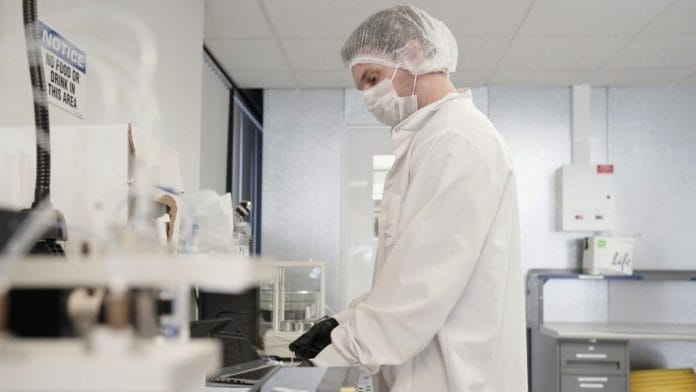Beijing: A Chinese drug and diagnostic firm has cautioned that the slew of new test kits that promise to detect the coronavirus in just a few minutes may not be as accurate as conventional kits, a potential setback for countries seeking to rapidly test their citizens.
“Such rapid testing is not as accurate as the traditional nucleic acid test that takes about two hours to turn out results,” Wu Yifang, Shanghai Fosun Pharmaceutical Group Co.’s chief executive officer, said in an interview. The drugmaker also has a swift testing technology but it’s working on making the results more accurate, according to Wu.
Abbott Laboratories unveiled a coronavirus test on March 28 that can confirm if someone is infected in as little as five minutes, marking a big leap in testing technology against the deadly pathogen that has sickened more than 940,000 and killed over 47,500 globally. Shenzhen Bioeasy Biotechnology Co. has been supplying its version of rapid testing kits to the European Union even before getting regulatory approval in China for domestic use.
As the outbreak spreads from Milan to New York and infected cases spike again in Singapore and Hong Kong, interest is surging in any medicine, therapy or diagnostic tool that might prove effective against this highly-infectious virus, even if their efficacy is still being studied.
Also read: This is how my team isolated the new coronavirus to fight the global pandemic
Easy-to-Deploy
The faster and easy-to-deploy diagnostic kits seemingly save time and resources for nations under pressure to widen their testing efforts.
But there have been reports of faulty kits, like those bought by Spain and the Czech Republic.
Shenzhen Bioeasy, which sold thousands of test kits to Spain, said in a statement on March 27 that false results could be due to improper use of its kits or faulty specimen collection.
While the rapid diagnostics makes such kits well-suited for drive-through testing centers, doctor’s offices or even homes, the jury is still out on whether they work.
“These rapid tests are still being evaluated and we have not seen the evidence and the potential performance of these tests to diagnose Covid-19,” said Socorro Escalante, World Health Organization’s COVID-19 incident manager for the western Pacific region, during a press briefing on Tuesday.
Can’t Wait
Many governments have decided not to wait and are buying such test kits in bulk anyway. This is spurring drugmakers to develop more such tools.
Abbott said its rapid test kits cut the time it takes to confirm infection from hours to minutes. The kits use molecular testing technologies to identify a small section of the virus’s genome and then amplifies it until there’s enough for detection.
Abbott’s ID NOW COVID-19 test delivers results “which are valued for their accuracy in detecting viruses such as flu in similar settings,” the healthcare company said in an emailed response Thursday.
Abbott’s kits were granted emergency use authorization from the U.S. Food and Drug Administration, underscoring the urgency in the nation that has rapidly scaled up testing after becoming the latest hotspot in the pandemic.
Accuracy Data
The nod from USFDA was received after the “performance was established by testing a limited number of samples,” the American drugmaker said. “Performance characteristics, including accuracy data, will continue to be collected in the field.”
Fosun, which is selling two-hour test kits to South Korea, Portugal and Germany among others, is still working on a rapid test of its own.
“It would be heartening to see a rapid test kit that’s also highly accurate,” Wu said. “We want to rush out such a product as soon as possible so that tests can be done anywhere and people don’t have to wait long.”
Also read:India isn’t on top of list for coronavirus test kits suppliers






